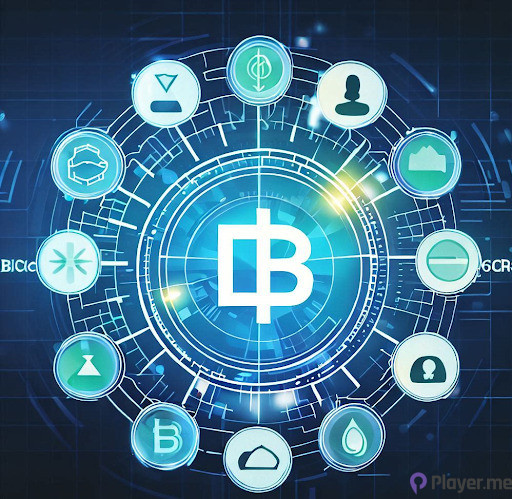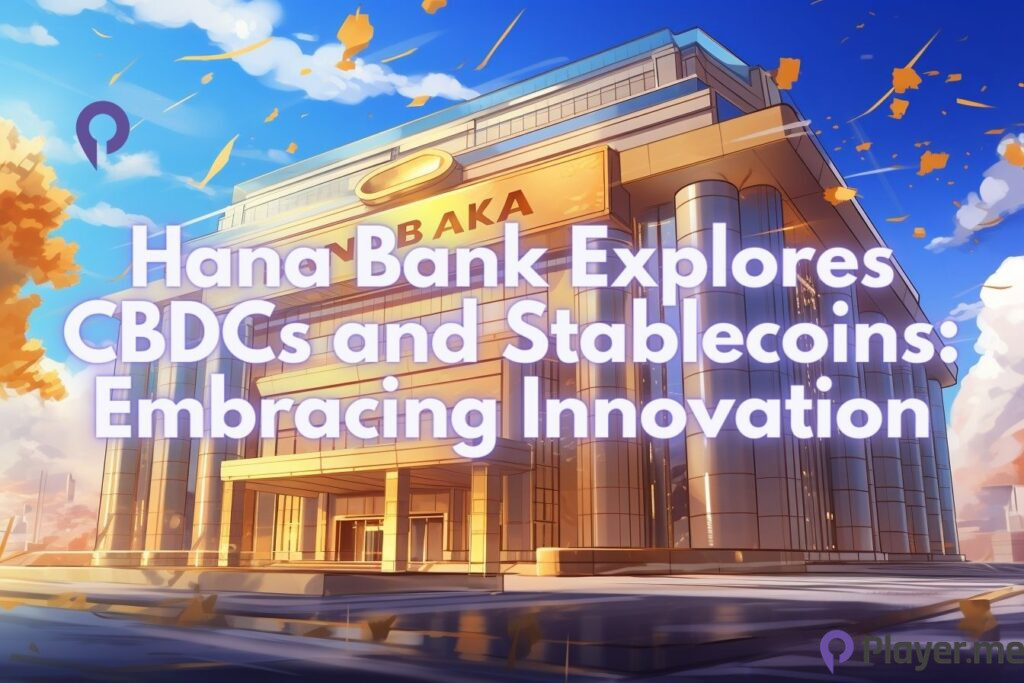Overview
Hana Bank, which is one of the largest South Korean commercial banks, has been exploring the blockchain space for years now, with several projects related to digital identity, crypto research, and real estate. Along with other leading banks in the region, it is actively seeking alternatives to stablecoins and Central Bank Digital currencies, or CBDCs. They are actively showing a keen interest in certificate of deposit accounts, which shows evidence of a growing trend towards blockchain-based monetary solutions.

Hana Bank Leads the Way in CBDC and Stablecoin Exploration
Headquartered in Seoul, South Korea, Hana Bank is one of the biggest commercial banks in the country. It was established in 1967 as a government-owned bank and has achieved several milestones since, including being the first Korean bank to export the Korean Won to another nation during the 2002 Football World Cup. It has become a major part of South Korea’s foreign exchange market over the years.
Hana Bank recently made an internal decision to join the CBDC project initiated by the Bank of Korea. As part of this initiative, it plans to conduct extensive research on CD tokens, which are steadily gaining popularity due to their reliable nature. Its involvement represents a milestone in the development of innovative financial technologies.
The bank has also recently intensified its collaboration with technology giant Samsung, as both of them are working on a CBDC made specifically for offline transactions. The two entities signed a Memorandum of Understanding, or MOU, in Q2 of 2023 after a successful negotiation period. Samsung has previously collaborated with the Bank of Korea on CBDC-simulated testing.
Also Read: Game Changer: Putin Enacts Law Paving the Way for CBDC in Russia

CDs Are More Promising Than Stablecoins and CBDCs
A CD, or certificate of deposit, is a type of savings account that locks in a certain amount of money for a specific time period, such as half a year, a year, or five years. The bank that issues the CD pays the account holder interest for keeping their money with them. When the CD matures, the account holder receives the money invested plus the interest accumulated. CDs are considered a very low-risk way to save money.
Along with Hana Bank, Woori Bank, another private bank in Seoul, has also demonstrated interest in exploring CDs. Woori Bank’s research department has released a detailed report on these tokens. Both of these banks are approaching the concept of stablecoins from a modern perspective, treating them as alternatives to both stablecoins and CBDCs.
The Woori Bank’s research on deposit tokens and CBDCs highlights the importance of conducting various demonstration experiments with deposit tokens. This strategic move came as a result of increasing interest in wholesale CBDC and deposit token models and their advantages compared to traditional stablecoins.

Also Read: FTX Sues Sam Bankman-Fried and Associates for $1 Billion
Bank of Korea’s Proof of Concept CBDC Test
As mentioned before, Woori Bank’s report on deposit tokens and CBDCs concluded that CD tokens are perceived as more stable since they do not deviate significantly from the current banking system. In fact, the Bank of Korea is conducting a proof-of-concept test for a CBDC, which also includes Woori Bank and Hana Bank as participants.
The report stressed the need for domestic financial companies to conduct various overseas and domestic demonstration experiments using depository tokens, just like global banks. It further highlighted the interest in CD tokens, which stems from the apprehension arising from several stablecoins failing in 2022.
For instance, the collapse of Terra’s native token, UST, resulted in algorithmic stablecoins coming under increasing scrutiny from regulators, leading many investors to walk away from them. Additionally, asset-backed stablecoins like Tether have also been de-pegged in many instances recently, which has raised scepticism. All of these failures raised concerns among financial regulators, which began the search for reliable alternatives such as CD tokens.
Challenges in South Korea’s Digital Currency Project
The Bank of Korea announced its active preparations for a potential CBDC introduction back in July. It has started exploring various aspects, such as enabling offline payments using near-field communications, incorporating smart contracts, and facilitating cross-border payments.
The pilot programme, which involves 14 private banks, is still operational. However, it has faced numerous technical challenges despite its progress. This system is capable of handling 2000 transactions per second, which significantly dwarfs most domestic payment systems. However, it has slowed significantly when nearing its limits.
However, the growing interest in CD tokens as well as CBDCs in the South Korean banking sector promises to reshape the financial landscape, providing a more reliable environment for investors and consumers alike. The continued focus on exploring blockchain-based alternatives has made South Korea a hub of financial innovation and technological advancement.
Related: Crypto Arbitrage: The Complete Guide
Conclusion
The move towards CD tokens and CBDC implementation in South Korea is the beginning of a promising new era of stability and security in banking. With industry leaders such as Hana Bank and Woori Bank actively engaging in development, South Korea is well on its way to embracing the future of digital finance.
Frequently Asked Questions
What Was the First South Korean Bank to Start Exploring Blockchain?
Shinhan Bank is the first South Korean bank to explore blockchain technology. It launched a blockchain-based loading platform in May 2019 to simplify the process of online loans.
What Are Some Examples of CD Tokens?
Two examples of CD tokens are REX and HEX. REX is a Binance Smart Chain token that can be used in various decentralised finance (DeFi) applications. HEX is an Ethereum-based token that is claimed to be the first blockchain certificate of deposit.
What Are CBDCs?
CBDCs refer to central bank digital currencies, which are digital forms of sovereign money that central banks issue and regulate. They provide a secure and inclusive payment method that can complement or even replace cash in the near future.





